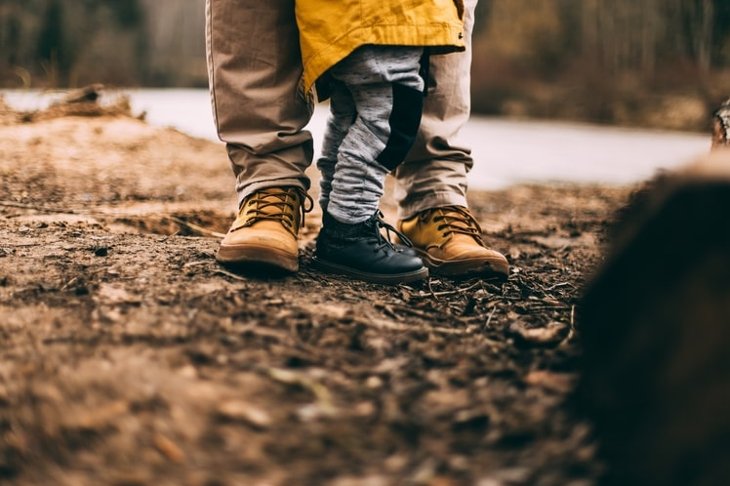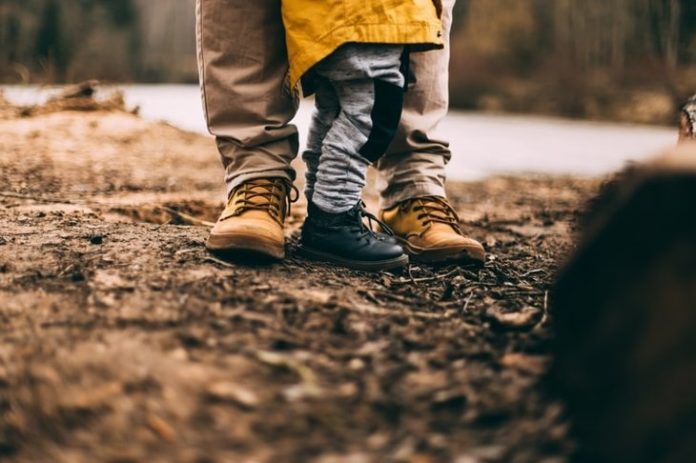
It’s seems like an eternity since Canada reported its first COVID-19 case in January. Today, we’re slowly returning to a “new normal.” This season has been heartbreaking and stressful, especially for children who can’t fully comprehend what’s happening. With the right tools, parents and caregivers can navigate kids through our pandemic reality.
The case for kids
According to the daily epidemiology update from the Public Health Agency of Canada on May 21, 2020, kids have made up approximately 6 percent of Canada’s COVID-19 cases. “Physically, children seem to be largely spared,” says Dr. Abigail Gewirtz, the director of the Institute for Translational Research in Children’s Mental Health and author of When the World Feels Like a Scary Place: Essential Conversations for Anxious Parents and Worried Kids.
“But research suggests the pandemic has had a significant impact on their mental health,” she says. Rates of anxiety and depression in children have been increasing for years, and she warns that against that backdrop, the stress of the pandemic is exacerbated.
Let’s talk about stress, baby
Checking in with your kids about how they’re feeling helps you to better support each child’s unique experiences. Unfortunately, many parents feel unequipped to talk about the pandemic.
1. Deal with yourself first
“For many children, the panic and fear has been magnified by the reaction of parents,” says Jo Frost, a bestselling parenting expert and the star of the hit TV show Supernanny.
Gewirtz agrees. “You need to put your own stuff aside if you want to truly help your kids,” she explains. For instance, she says many parents feel guilty that their kids are feeling lonely, so parents might toss out the bedtime routine or let their kids indulge in junk food.
“Ironically, it’s exactly during these chaotic times that kids desire structure and routine,” she warns. “So even though our own guilt may make us say we should let go of the rules a bit and relax, that’s not what kids need.”
“Figure out how COVID-19 is affecting you, and do some self-care,” says Gewirtz. “Deal with your own stuff separately so when you sit down with your kids to listen to their worries, you’re truly listening to their worries.”
2. Plan ahead
“If your child is asking questions about COVID-19, think about what level of detail you’re willing to share with them,” advises Gewirtz.
Every child is different, with varying degrees of what they might be able to handle, yet every kid has a right to know what’s happening in their world. Stick to the facts, be honest if there are things you don’t know, and use age-appropriate language.
A big thing to discuss is your child’s understanding of the changing rules as society re-opens. “With [re-opening] phases happening at different times, parents need to listen to the details and communicate clear directions about what those next steps are and why,” says Frost.
Frost suggests embracing the mindset of “One day, but for now …”. For example, you might say, “One day you’ll be going to school every day, but for now we’re homeschooling.”
She says this gives your child hope, but also helps them to safely follow whatever the current safety guidelines might be in your community.
3. Provide reassurance
Children have a difficult time separating what they hear or see, from what’s happening in their personal lives. So, it’s important to understand what’s worrying them, then reassure kids by giving them specific instructions on how to stay safe and be part of the solution.
“Let’s say your five-year-old heard that his friend’s grandma died in a nursing home,” says Gewirtz. Obviously, you wouldn’t talk about the dire circumstances in some nursing homes. “You might tell him, ‘There’s an illness that affects older people. For now, your own grandma is safe, and I’m going to keep it that way, which is why we aren’t going to visit her for now.’”
Don’t offer false hope. You want them to be informed and avoid infection, of course. But it can all be phrased in a way that’s factual and positive. Another good example is explaining to a toddler that people can get sick when someone coughs, so it’s important to practice coughing into her elbow.
“Have the discussion about what they’re worried about,” says Dr. Gewirtz. “But also invite them to brainstorm ideas to make it better.”
4. Reconnect at a distance
Connecting to a sense of community improves children’s mental health and wellness. And according to Statistics Canada, some of the biggest COVID-19 concerns among youth are about maintaining social ties and feeling stressed about family confinement.
There are many great apps that can allow your children to keep in touch with their friends and loved ones via video and text, but think beyond the screen.
Perhaps you could drive to one of their friend’s houses, and let the children talk to each other through a window. Maybe you could drop off groceries together for their grandparents.
“Find things that help them feel part of the world beyond the home,” says Gewirtz. “One of my kids is sewing masks to give away. Your teen could mow someone’s lawn, or the whole family can go out and make noise to celebrate healthcare workers.“
5. Stay positive
These are difficult times, but your own positivity and proactive planning helps children feel safe, supported, and hopeful.
“Look at the glass half full,” says Frost. “Be in gratitude for what we have today. Become more mindful. Because none of us have an ‘end date’ for this pandemic, it has made many feel out of control. Surrender to what you can control; flow with the rest. The less you resist, the easier you adapt.”
Even now, this new normal has given many families more opportunities to connect together over mealtimes or activities. And the most important thing to remember is that no matter what today looks like, if you’ve kept your family healthy and safe, you’ve done what you need to do.
“You’re teaching your children strength and resilience,” says Frost, “and what courage looks like, because in the face of fear you keep moving forward. I salute you on behalf of every child.”
Pandemic parenting resources
Kids Help Phone Crisis Text Line
Kids can text “HOME” to 686868 and talk with a trained crisis responder about their COVID-19 anxieties.
Your provincial health authorities
Things change quickly. Stay up to date on information about how your community is reopening so you can give children the most current info.
Mental Health Commission of Canada
Whether you need strategies for your own self-care, or your family is isolated with an abuser, the commission offers a hub of resources to help. mentalhealthcommission.ca
























